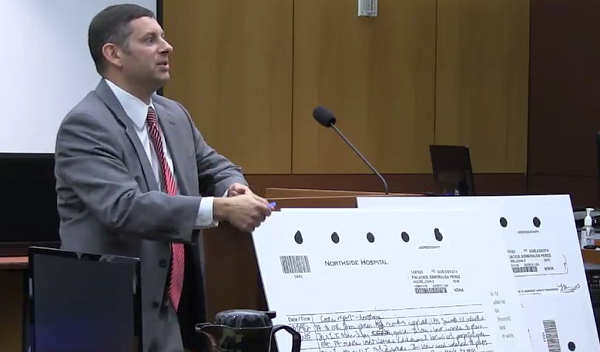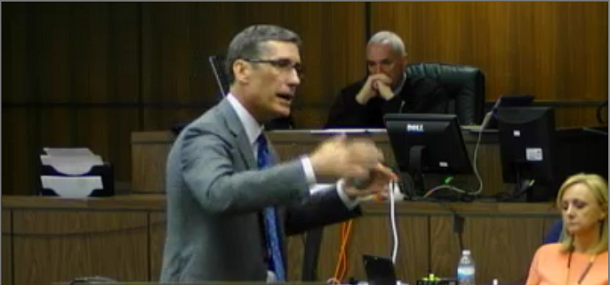Jonathan Marigliano tells jurors medical negligence led to the life-long brain damage Esmeralda Palacios suffered during a 2012 lung biopsy procedure. Palacios' husband, Raul, represented by Marigliano, claims Drs. Laura Kaufman and Donald Silverman were negligent in their treatment of his wife during the procedure.
Atlanta—Whether the catastrophic brain damage an Alpharetta woman suffered during a lung procedure was reasonably preventable became the key question presented to jurors as trial began against the anesthesiologists involved in the surgery. Palacios v. Kaufman, 13EVO17275.








